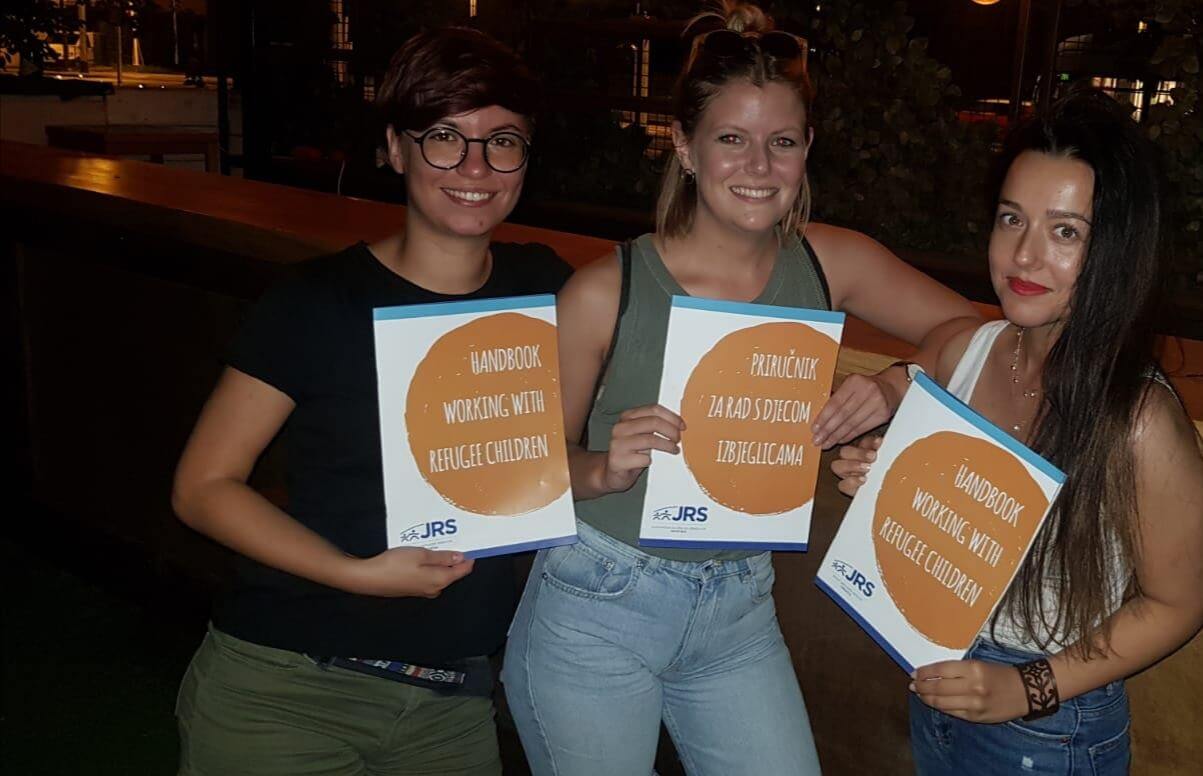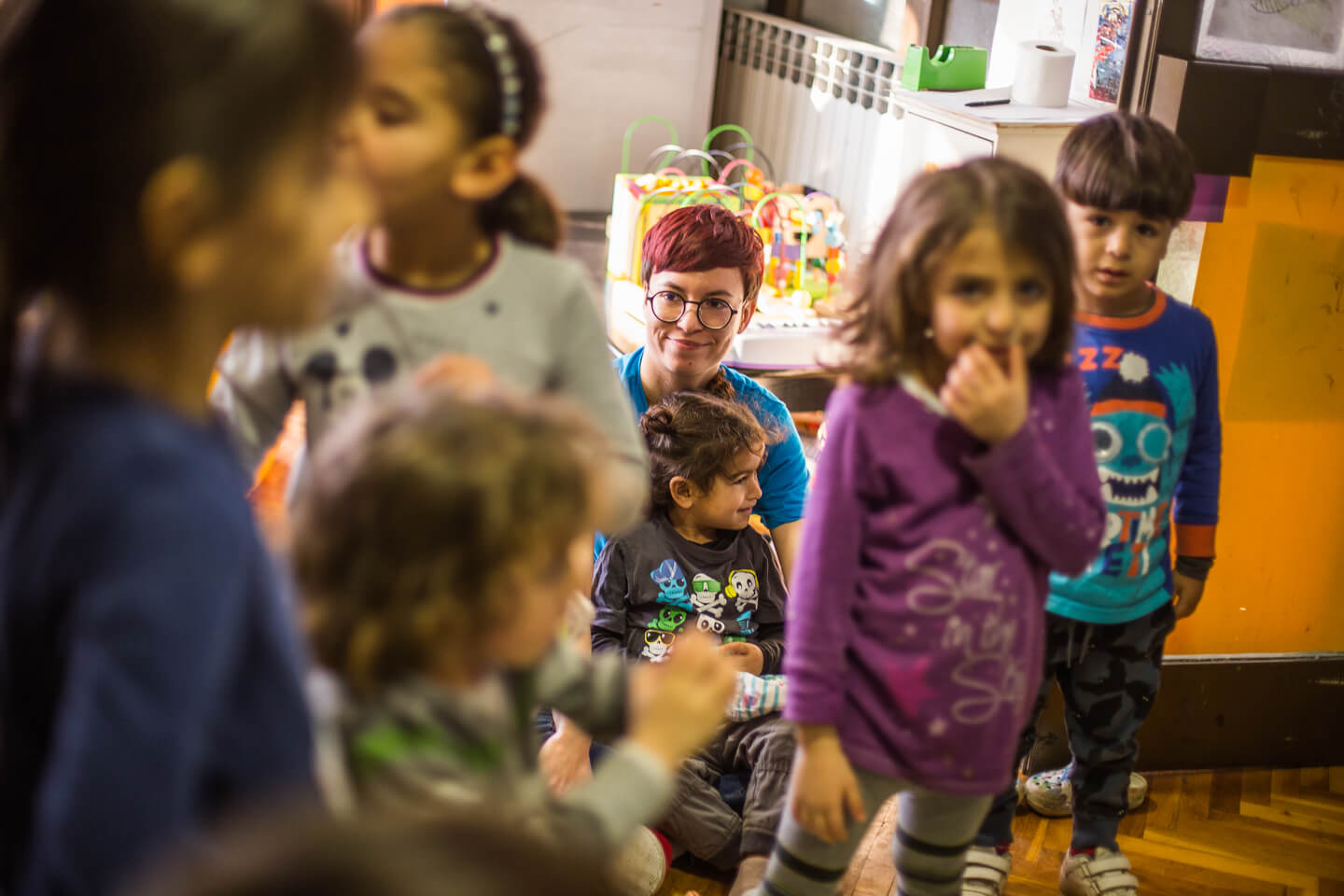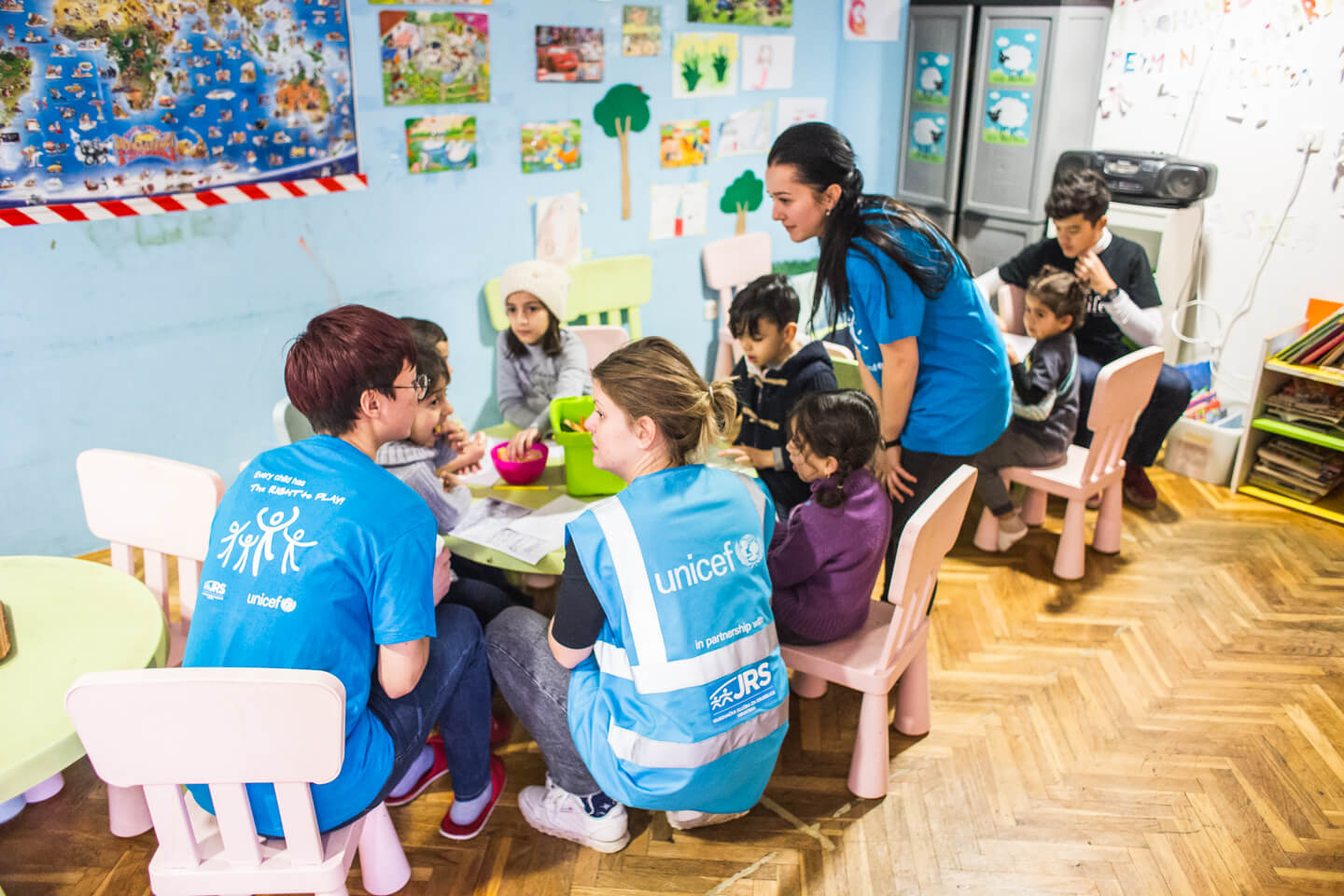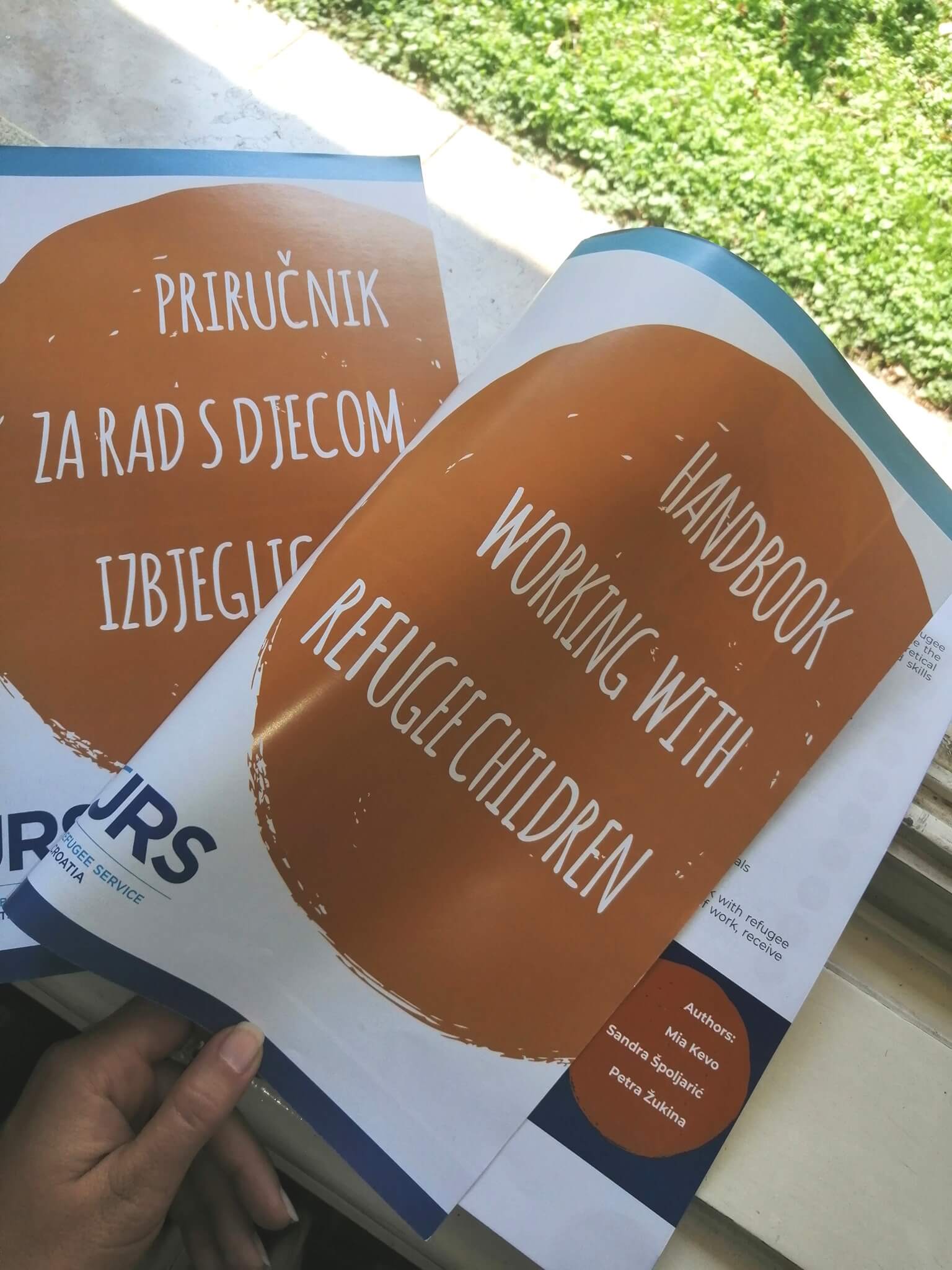Croatia's Red Cross on Alert Due to Ukraine Situation
ZAGREB, 25 Feb 2022 - Croatia's Red Cross (HCK) expresses deep concern due to the escalation of the conflict in Ukraine and, as part of the International Red Cross movement and the Red Crescent, it has put its forces on alert in case it becomes necessary to accept refugees, HCK reported on Friday.
Based on current forecasts, a large wave of refugees can be expected from Ukraine in Poland, Slovakia, Hungary and Romania who will receive aid from national Red Cross associations in those countries. Those associations are part of the Neighbours Help First network, which is currently coordinated by HCK, a press release said.
If refugees will need to be accepted in Croatia, HCK will be ready to provide help. Currently, HCK is identifying possible reception capacities in Croatia.
HCK has activated its search services, which is already in cooperation with the International Red Cross in preparing activities for displaced persons and refugees, and it will assist in identifying persons and connecting families should refugees start arriving in Croatia.
Having in mind that the population affected by the war conflict is already in need of humanitarian and other aid, HCK is preparing an appeal to help displaced persons and refugees and will promptly release further information in this regard.
Touring Exhibition About Refugees in Aftermath of WW2 Arrives in Zagreb
ZAGREB, 1 Feb 2022 - The travelling exhibition called "Memory of Nations" about 12 people who survived the periods of large-scale displacements and changes of borders in the wake of the Second World War was staged in Zagreb on Tuesday.
The multilingual and multimedia exhibition, staged on a truck, is staying near the Trg Francuske Republike Square until 21 February. After Zagreb, the next stops are Dresden, Wrocław and Prague. It was already staged in Bratislava.
The exhibition, prepared as part of a project called "Inconvenient Mobility" by associations from Croatia, the Czech Republic, Germany, Poland and Slovakia, brings stories and experiences of individuals who migrated after the Second World War due to changes of borders, political decisions, and the war and post-war legacy.
The Croatian NGO included in this project is Documenta, which has done five interviews with witnesses who speak about the migrations of local Italians in Istria, Kvarner and Dalmatia.
The other stories in the exhibition are about displaced persons from Germany, Slovakia, Czechia, Hungary, Poland and Ukraine, said Documenta leader Vesna Teršelič today in Zagreb.
Danish Social Democrats: Croatia Is Right to Turn Back Migrants
ZAGREB, 12 Sept, 2021 - The Croatian government is doing the right thing by stopping illegal migrants at the Croatian border, the spokesman for the ruling Danish Social Democratic Party, Rasmus Stoklund, told Hina in an interview.
He would not comment on criticisms by some organisations of the methods allegedly used by the Croatian border police in turning back migrants.
It would be easy for me as a Danish politician to sit here and criticise the situation in another EU member state that first deals with the problem, Stoklund said, noting that his country assists EU member states facing attempts at illegal immigration.
The Social Democrat member of the Danish parliament defended Denmark's strict immigration and integration policy, saying that the Danish approach is increasingly accepted in the European Union.
Denmark has adopted a very clear strategy to avoid taking in refugees from the Middle East and African countries every year. We are witnessing a culture clash in many areas, notably in attitude towards work, universal freedoms and how children should be raised, Stoklund said.
Denmark has a reputation as one of the happiest countries in the world, but in recent years it has attracted attention with its "zero refugees" strategy.
Stoklund said that the long-term aim of the laws passed this year is to reduce the number of applications for asylum in Denmark to zero.
Danish media have said that the government is negotiating this with Egypt, Eritrea, Rwanda and Ethiopia.
Two years ago, only 2,716 people applied for asylum in Denmark, eight times less than in 2015.
Although this initiative is gaining support in Denmark, it is giving rise to concern in the international community, with the UNHCR saying that it is against the international principles of cooperation on refugees.
Stoklund expects this policy to discourage refugees from heading to Europe. He said that the money that would be saved on support to immigrants who are not entitled to political asylum would be spent on development projects in their countries of origin.
Stoklund expressed satisfaction that a majority of EU member states follow the same principle as Denmark - refugees should be assisted in the adjacent countries where they are currently staying before they set out to Europe.
At the last European Council meeting we were very happy to see that none of the European countries wanted to send a signal to refugees from Afghanistan to come to Europe. The countries have realised that the situation like the one in 2015 is untenable, the Danish MP said.
For more about Croatia, CLICK HERE.
Migrant Smuggling Market in Balkans Worth €50 Million
ZAGREB, 11 May, 2021 - The migrant smuggling market in the Western Balkans is worth at least €50 million a year, says a report by the Global Initiative Against Transnational Organised Crime, describing Serbia as an important destination for migrants because it borders with four EU member states.
The report notes that Serbian police have discovered several tunnels, three to seven metres deep and up to 30 metres long, under the wire fence along the Serbia-Hungary border near the Hungarian town of Szeged and village of Ásotthalom and the Serbian village of Kelebija.
The tunnels are considered relatively risky due to the possibility of arrest and the danger of them collapsing. The smugglers' fees range from €500 to 5,000.
This is much less than during the 2015 migrant however statistics show that the regional market for migrant smuggling is still large regardless of attempts to close the so-called Balkan migrant smuggling route, says the Global Initiative, an international network fighting acquisition of illegal gain and crime.
Quoting Voice of America, the Belgrade media reported about the report, which focuses on the flows of people, drugs and money in the Western Balkans.
Using maps and analyses helps identify key entry and exit points for migrant smuggling through six Western Balkan countries, as well as locations that serve as drug smuggling hubs. Not even the COVID-19 pandemic seems to have disrupted illicit flows, says the Global Initiative.
Its report identifies Serbia as an important destination for asylum-seekers and migrants because the country borders with four EU members - Croatia, Hungary, Romania and Bulgaria.
The report quotes data from the UN High Commissioner for Refugees (UNHCR) under which in 2019, 30,216 migrants entered Serbia, almost twice as many as in 2018. The report also quotes data from the Serbian Ministry of the Interior under which in 2020 more than 8,500 migrants were prevented from illegally crossing the Serbian border.
Daily Says Croatia to Take in 12 Girls from Refugee Camp Moria
ZAGREB, September 12, 2020 - Unlike Austria and countries of the Visegrad Group, which are traditionally against the relocation of migrants in Europe, Croatia has joined most EU countries that have decided to take part in their relocation after the Greek refugee camp Moria on Lesbos island burned to the ground on Wednesday.
The Vecernji List daily on Saturday reports having received confirmation from the Croatian Ministry of the Interior that 12 unaccompanied girls will be relocated from Greece to Croatia.
It is still not certain when the children will arrive and ministry officials have said that their relocation could be expedited considering the Moria camp fire and its devastating consequences.
Moria, infamous for its conditions, was home to over 12,000 migrants, four times its capacity. It burned down on Wednesday, leaving thousands of migrants out in the open.
Ten European countries, including Croatia, on Friday supported the plan to relocate 400 unaccompanied minors from Lesbos.
Croatia was to have accepted ten unaccompanied minors from Greek refugee camps, and after the Moria camp fire, the number has been increased to 12, says Vecernji List.
For the latest travel info, bookmark our main travel info article, which is updated daily.
Read the Croatian Travel Update in your language - now available in 24 languages
A Handbook: Working with Refugee Children
August 22, 2020 - Sandra Špoljarić, along with her colleagues Petra Žukina and Mia Kevo, wrote a handbook titled "Working with Refugee Children" and held three national and global webinars on this topic.
The handbook was created to share their experience of working with refugee children through various topics such as the definition of refugee children in the world and children's rights, understanding risk and protective factors, stress and trauma in refugee children, work recommendations, knowledge and skills required for group and individual work. "We designed it to be 'at hand' to all future professionals, volunteers, and people of goodwill interested in working with refugee children. At the same time, through educational activities, creative and sports activities and psychosocial programs, development in a healthy environment was encouraged, including the children and their opinions," said Sandra.

After an informal work experience in London, Sandra enrolled in the MA Childhood Studies and Children's Rights in Potsdam, Germany, and at the end of her studies she came up with the idea that she could do an Erasmus + internship in Zagreb at the Shelter for Asylum Seekers with Refugee Children. The dream came alive and she started working for the Jesuit Refugee Service Croatia in Zagreb on the project Child-Friendly Space, which was implemented in cooperation with UNICEF.

Kristóf Hölvényi | JRS Hrvatska
The incentive to work in such an environment is resistance to the marginalization of certain groups and children, especially children, due to situations where they cannot defend themselves or have been brought into them on their own. "Given my studies in Germany, my contribution was to make me aware that the Convention on the Rights of the Child speaks about every child's rights, regardless of race, religion, cultural background, or where the child is," said Sandra, a Master of primary education. The Convention deals with the obligations of adults towards children and the responsibilities of many social factors regarding the protection of children. The goal of the whole Child-Friendly Space project was to provide children with a protected and stimulating environment during or after a crisis where they could get the necessary support and security.

Kristóf Hölvényi | JRS Hrvatska
The handbook is only available for a few weeks, but Sandra hopes it will be useful to people who have never met refugee children in their work before. "When we held webinars, experts from schools said that it was very useful to them precisely because it would make it easier for them to work and understand the refugee children who went to school and started the integration process," said Sandra.
Due to the unenviable situation with the virus, this project was interrupted and has not yet resumed, but all three of them hope things will sort out soon. Currently, the JRS / Jesuit Refugee Service is no longer in the Shelter on a project involving work with children. "I believe that all organizations and people who have worked or will work with refugee children serve children well and with dedication," said Sandra. She also volunteered at the Center for Education in Pula, on World Youth Day in Madrid, Student Wave of help (Studentski val pomoći) when areas of Slavonia were flooded, at the event 72 hours without compromise, occasional volunteering for the Jesuit Refugee Service, and collecting donations and promoting activities for the Small Home of Subukia.

When working with the refugee children, Sandra was taught that every day is a new beginning and that parting does not mean goodbye but goodbye because the heart never remains untouched by the eyes of children who want to be accepted and equally valued. Sandra highlights that refugee children are just children like all other children and have the same needs. "I was surprised by the great motor skills, resourcefulness and the fact that the children spoke several languages… even in some situations they took on the role of "translator" for their parents," said Sandra. Her wish is to work with children and for children.
You can contact the Jesuit Refugee Service Croatia by e-mail for the handbook.
For more, follow our lifestyle section.
For the latest travel info, bookmark our main travel info article, which is updated daily.
Read the Croatian Travel Update in your language - now available in 24 languages
CMS Files Criminal Complaint Over Torture and Humiliation of Refugees
ZAGREB, July 23, 2020 - The Centre for Peace Studies (CMS) has filed yet another criminal complaint with the State Attorney's Office (DORH) against unidentified persons for allegedly torturing, humiliating and illegally expelling 16 refugees from Croatia to Bosnia and Herzegovina in late May.
"This was testified by five refugees who suffered serious injuries, one of whom had both of his arms and a leg broken. It is frightening that such inhumane treatment was most probably motivated by their skin colour and the fact that they belong to the vulnerable refugee population," the CMS said in a statement on Thursday.
The statement said that eight armed men wearing unmarked black uniforms and ski masks inhumanely treated people seeking protection, and that according to victims' accounts they were most probably members of a special police unit or an operation codenamed Corridor.
The armed men tied the refugees to trees, fired shots from pistols close to their ears and feet, beat them up using any objects at hand, and took away their belongings on pain of death. In the end, the men humiliated the refugees by rubbing mayonnaise, ketchup and sugar into the injuries they had previously inflicted on them, CMS activists said.
The men handed over the refugees to four police officers who then illegally expelled them to Bosnia and Herzegovina while many of the refugees could not even walk as a result of the injuries.
Cooperation between thugs and police
The refugees' testimonies point to cooperation between the thugs in black and the police, and the CMS expects DORH to establish the nature of such cooperation and whether the armed men in question were members of a special police unit. The CMS also expects DORH to conduct an effective and independent investigation and punish the perpetrators.
It is important to take into account statements by police officers about the police operation Corridor, whose description fits the description of the latest case and previous accounts by refugees, the CMS warned.
Minister: Police Will Solve Every Case of Incitement to Ethnic Intolerance
ZAGREB, June 12, 2020 - The police have launched an investigation into the appearance of a banner with vulgar and abusive messages against Serb children and women at a football match in a Zagreb suburb, Interior Minister Davor Bozinovic said on Friday.
Minister Bozinovic also reassured the public that the police would solve this case just as any case of incitement to violence and ethnic intolerance.
The banner with a vulgar invective against Serb women and children was raised by spectators on the stands during a football match in Zagreb's Kustosija neighborhood on Thursday.
Asked by the press whether law enforcement authorities had identified the perpetrators, Bozinovic said today that the police were one of the institutions that "very promptly" informed the general public of their activities and that they would share the information when they could do that.
The minister again refused media outlets' allegations about reports of police brutality against illegal migrants along the border.
I have recently pointed out very resolutely that the Croatian police do not treat anyone brutally. "The Croatian police protect the Croatian border and prevent illegal arrivals," he underscored during his visit to the northern town of Prelog.
"In any case, our message is that we will abide by the law, including national and European laws, and nobody can stop us from protecting the Croatian border against illegal entries, regardless of where those pressures come from," the minister said.
He said that those who disseminate allegations about red crosses being sprayed by Croatian police officers on the heads of migrants during the month of Ramadan were ill-intentioned both towards migrants and Croatia.
CMS Files Criminal Complaint Against Police Over Degrading Treatment of Refugees
ZAGREB, June 5, 2020 - The Centre for Peace Studies (CMS) on Friday filed a criminal complaint against unidentified police officers on the suspicion of degrading treatment and torture of 33 people, including two children, and their violent and unlawful expulsion from Croatia.
All the victims suffered torture and degrading treatment at the hands of the police, and according to their testimonies, police even marked them by spraying the top of their heads with orange paint.
"The lives of women, men, children, and families are threatened in this country on a daily basis. Refugees, by coming here to seek protection, as a rule, expose themselves to even greater risk. This risk is posed by the practice of police officers who illegally and violently expel people who are fleeing persecution," Antonia Pindulic, a lawyer for the CMS, warned at a press conference.
"In doing so, police use batons and guns, strip them naked in the middle of woods, taking away even their shoes, and this has been going on for nearly four years now," Pindulic said, adding that a new degrading practice was added in May as the police started marking refugees and other migrants.
"She said that in addition to the criminal complaint the CMS was ready to take other legal steps to protect the lives and dignity of those people.
The criminal complaint provides a detailed description of injuries inflicted, photographs and testimonies, and names many of the victims and witnesses.
The CMS demands that the State Attorney's Office (DORH) investigates the cases and punishes the perpetrators. It also wants the new leadership of the DORH to recognize the gravity of the alleged crimes and act in accordance with the law, thus breaking the practice of the previous leadership.
"The police and the victims agree on one point, that there are no police records of these cases, which is not surprising because these are deliberate violations of rights and police officers are suspected of committing a series of crimes," Pindulic said.
After the tens of thousands of cases documented by video recordings, photographs, and testimonies, including testimonies by police officers themselves, the lawyer believes that such cases are not an exception but a rule.
"It is clear that this is a political decision and systematic violence and it must be brought to an end," Pindulic said, adding that she expected the police to abide by the law and the DORH to investigate the allegations of serious violations of the law.
NGOs Call For Probes Into Violence Against Refugees
ZAGREB, May 22, 2020 - The Centre for Peace Studies (CMS) and the Welcome Initiative for migration rights staged a rally on Friday in front of the Interior Ministry's (MUP) building, calling on the ministry to conduct effective investigations into allegations of violence against refugees.
"Two weeks have passed since photographs were released showing refugees being marked with orange spray paint all over their heads, which the refugees say happened during unlawful pushbacks from Croatia," said Sara Kekus of the CMS.
During the rally, the activists held a banner saying "Humanity, not torture! Investigation, not denial!" and photographs of marked refugees.
We expect the ministry to produce concrete results following the investigation, instead of desperate attempts to defame the media and organisations dedicated to human rights' protection, said the protesters.
Activists criticised the Interior Ministry for their incomplete response to the inquiries about the unlawful treatment and the investigation. The Ministry had sent them a link to the press release initially directed at the British Guardian newspaper and the No Name Kitchen NGO.
This is not the first time the NGOs are calling for an investigation, they underscore, because for more than four years they have been witnessing that a lot of evidence has been submitted and the public still does not have the results of a single concrete investigation.
"It is up to us to show humanity, prevent further torture and violence and we demand investigations, instead of your denial of responsibility" Kekus said.


